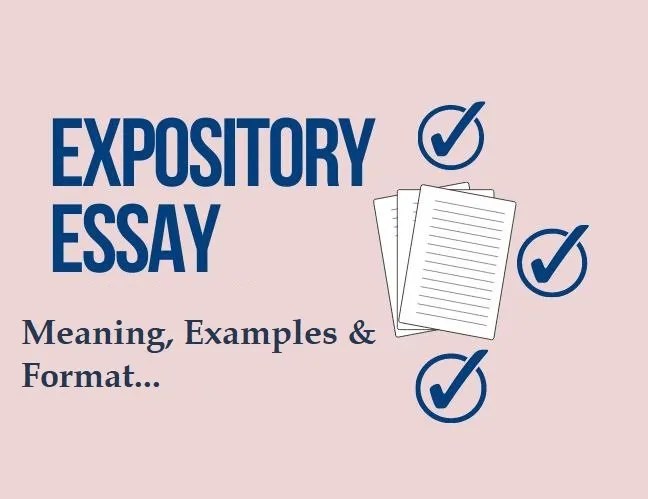
Education has been in the news for some time now and its obvious that is has been for the good and bad reasons, but most importantly and disturbingly too, it is for reasons that have turned out to be the obvious. A sector alleged to gulp many resources and has little or nothing to give in return except for human resources which are the strength of every nation.
Its no longer news to state that the united nations proposed budget for developing countries in terms of education should be 26 per cent of the total budget which is 40 percent should go to basic education.
However, this has been a far cry from reality as the federal government has not been able to meet up to the expected budget as only 12 per cent is allocated to the ever busy sector whose managers have become desperados in their bid towards achieving education for all come 2015, which is barely some months away. However, in this years budget, the sector is having the second highest after defence. It might look so little, judging from the myriad of problems in the sector and yet it is more than enough to do something meaningful in 2013.
Many lapses and challenges have led to many unanswered questions in the sector and many have opined that unless the government separates the two, there is no way the sector can improve, particularly in the aspect of procurement of works and services as everything from the government has to be over inflated.
Appointments are usually based on political sentiments and the dancers on stage have their bureaucracies which of course affects the statuesque which has been laced and abused with politics. The claim that even the VCs are highly politicised has come to stay and by so doing, the deans, HODs, the procurement and enrolment of students among others are also politicised.
External Examinations:
The poor performance of students in public examinations conducted by the examination bodies in Nigeria (WAEC, NECO, NABTEB, JAMB) was not only a source of concern to stakeholders but a national embarrassment. The wearisome situation attracted the attention of President Goodluck Jonathan, the National Assembly and the ministers of education which led to a summit in order to correct the ugly phenomenon.
There were several debates concerning the exams that had more ‘casualties’ and the fingers of many seemed to have pointed towards NECO due to documented statistics. However, investigation conducted revealed that the reasons might not be far-fetched as the exam bodies operate differently.
NECO , it was revealed has had only passes in mathematics and english of 20% in 2007, 26% in 2008, 26% -, 2009, 23% in 2010 and 30.9% 2011 May/June exams, while the November/December points are being awaited from over one million students who sat for the exams and this has sadly shown that 70% of Nigerian students are not qualified for tertiary education.
WAEC which is said to have improved in 2012 is still below 40% as only 39% were able to get up to five credits including mathematics and English. Last year, it was 31% but it is not to say that the ravaging problems of the sector in term of public exams have being solved.
Although, reasons given to be the cause for failure were numerous, but all can be tied down to psychological (eg fear and tension), environmental (eg poor learning or no learning structures, inadequate tables and chairs) infrastructural (eg unequipped laboratories) poor remuneration and change in education policies which makes it difficult for the teachers to cover the entire syllabus with the student.
Teaching And Gender Inequality:
The teaching profession was also places before a critical looking glass as it has been observed that women are sidelined especially in tertiary institutions which are male dominated.
The arguments and counter arguments has being a protracted matter in discourse. One of the challenges of the contemporary society and the educational system is to address gender inequality in the educational social systems so that schools and teachers at all levels can have a key role to play in developing a gender-sensitive future generation.
Gender stereotype is one type of subjective perception of what a man or woman should be or how people should behave. Most of these stereotypes often describe men as intellectually competent, strong and brave, while women are homely, warm and expressive, incompetent and passive. They portray the men as strong, dominant person with leadership trait, one whose work would be outside the home in often prestigious occupations, while the female is often usually portrayed as being subordinate and confined to the home.
Nigerian women generally are yet to occupy their positions on the Nigerian educational set-up. The wide gap between the males and females have existed over the years and deliberate efforts have been made by the United Nation to address it. These efforts include declaration of a decade for women, which culminated in the Beijing conference of 1995, Education for All, EFA, MDGs, Convention on the Elimination of all Forms of Discrimination Against Women, CEDAW, etc.
According to Teachers Registration Council of Nigeria statistical digest for 2008, there are 110,923 male teachers and 94,365 female teachers in the secondary schools in all the 36 states of the federation including Abuja, the federal capital territory.
However, by 2009, the statistics indicate that there are 121,750 male teachers and 125,801 female teachers which is a substantial improvement from the 2008 statistics.
Already, it has been established that culture and tradition seem to be the reason why Nigerian woman are under- represented in various sectors of the Nigerian labour force, which is just one of the surviving legacies of a traditional educational background that saw house keeping as the exclusive career of women.
The norms of most Nigerian societies are too male- oriented. Even school traditions. Many times discriminate against women’s education, as many text books are full of materials that reinforce gender discrimination and sex stereotyping. The career development of women is often tailored along specific occupations traditionally stereotyped as female occupation. Some teachers do not even invest time on female pupils believing that most of them will sooner or later end up in marriage.
North West And Unqualified Teachers:
The case of too many unqualified teachers was also an issue that was battled with, especially in the north western states which most stakeholders have said are products of secondary schools and not colleges of education . It is not an over statement to state that a teacher cannot teach what he/she does not know. And if such be the case, what type of students are government owned schools producing?
However, authorities in the field of teaching have debunked the claims. They have said with one voice that ‘majority of the teachers you find in some of these schools are not NCE graduates. Most of them are secondary school leavers of failures if you like. They are people who are were not able to pass their A levels.
States are the culprits because they are the employers of labour.’ The minimum qualification has been set for teachers since December 2006. It was enforced that year, but it stated was back in 2003. If you go to basic schools in rural areas, you will find that most of the teachers are not NCE graduates. So many of the criticism labelled against teachers who are not supposed to be in the classrooms because they have not been trained and the bad name keeps being ascribed to the real ones that have been trained.
ASUU Strike: Kudos can be given to the executive members of the Academic Staff Union of Universities who seemed to have believed in the university system as far as the year 2012 was concerned as strike actions were not in vogue. It is possible to say that the myriad of other problems that had rocked the sector such as the killings of students in tertiary institutions due to security challenges in some parts of the country and the closure of schools due to the menace was responsible. However, the challenges still exist and screaming for attention in the year 2013.
Mass Literacy/ Nomadic Education:
With part of its functions which includes designing and promoting strategies and programmes for the implementation of mass literacy in line with the spirit of EFA and MDGs as well as working in collaboration with all concerned to eradicate illiteracy in Nigeria, this part of the sector has not done much in terms of reaching out to millions of Nigerians who can neither read or write, thereby making the dreams of the federal government for the sector by 2015 a beautiful sight from a distance or one that can be only wished for, especially in the north where religion and culture reigns supreme.
So far, like in other sectors, adequate funding is part of the challenge been faced by NMEC in the discharge of its duties. However, it has seen to the dissemination of learning materials in non-formal education programmes across the country especially in the north in states like Adamawa (for nomadic education) Sokoto and others whose ratio to the south in terms of education in nothing to go by.
It has also prescribed strategies and methods for integrating mass literacy, adult and non-formal education for the purpose of ensuring increase in the enrolment and completion of studies and has gone the extra mile to encourage NGOs to support the laudable effort of the government.
With all of these, it might be one of the parastatals under the federal ministry of education that might be scrapped or merged with another, probably UBEC, due to what stakeholders in the industry have termed ‘duplication of roles or responsibility’ and probably for its silent roles.
With the dawn of the new year, expectations are at the peak as to what the education sector has in store for Nigerians and this is based on that background that it has sailed on many waters and is hoped that it will anchor well come 2015, even though several soothsayers have prophesied that the 2015 goal is a mirage as even the year 2020 is not feasible.
At least, the federal government’s target of at least basic education for all is still in the pipeline, stakeholders and enthusiasts are of the opinion that in the year 2013, things must change for the better.



